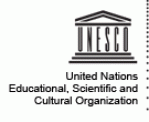UN unveils education initiative connecting mobile phones to the classroom
UN unveils education initiative connecting mobile phones to the classroom

With mobile telephone access reaching over five billion of the world’s population, the United Nations educational agency today announced the launch of an initiative to harness the technology and bring mobile phone use into the classroom.
In a statement issued in Paris, the UN Educational, Scientific and Cultural Organization (UNESCO) declared the opening of a global summit and symposium gathering experts from around the world to discuss the impact of the mobile telephone on education and learning.
Dubbed Mobile Learning Week, and organized in partnership with the conglomerate Nokia, the meeting has brought together close to 200 policy-makers, educators, academics and researchers from across the globe in an effort to provide insight on how mobile telephones can support teachers and students alike.
Initiatives promoting mobile learning have already been spearheaded across a wide range of countries – including Mozambique, Pakistan, South Africa, Niger, Kenya, and Mongolia – where policies have already provided access to distance education in far-flung communities and improved literacy among girls and women.
According to recent data, 90 per cent of the world’s population now has access to mobile networks, prompting growing enthusiasm for the potential of mobile devices to improve education access and quality.
###
About UN Educational Scientific and Cultural Organization (UNESCO)

UNESCO works to create the conditions for dialogue among civilizations, cultures and peoples, based upon respect for commonly shared values. It is through this dialogue that the world can achieve global visions of sustainable development encompassing observance of human rights, mutual respect and the alleviation of poverty, all of which are at the heart of UNESCO’S mission and activities.
The broad goals and concrete objectives of the international community – as set out in the internationally agreed development goals, including the Millennium Development Goals (MDGs) – underpin all UNESCO’s strategies and activities. Thus UNESCO’s unique competencies in education, the sciences, culture and communication and information contribute towards the realization of those goals.
UNESCO’s mission is to contribute to the building of peace, the eradication of poverty, sustainable development and intercultural dialogue through education, the sciences, culture, communication and information. The Organization focuses, in particular, on two global priorities:
- Africa
- Gender equality
And on a number of overarching objectives:
- Attaining quality education for all and lifelong learning
- Mobilizing science knowledge and policy for sustainable development
- Addressing emerging social and ethical challenges
- Fostering cultural diversity, intercultural dialogue and a culture of peace
- Building inclusive knowledge societies through information and communication
###
> United Nations (UN).
 The United Nations was established on 24 October 1945 by 51 countries committed to preserving peace through international cooperation and collective security. Today, nearly every nation in the world belongs to the UN: membership totals 192 countries.
The United Nations was established on 24 October 1945 by 51 countries committed to preserving peace through international cooperation and collective security. Today, nearly every nation in the world belongs to the UN: membership totals 192 countries.
When States become Members of the United Nations, they agree to accept the obligations of the UN Charter, an international treaty that sets out basic principles of international relations. According to the Charter, the UN has four purposes:
- to maintain international peace and security;
- to develop friendly relations among nations;
- to cooperate in solving international problems and in promoting respect for human rights;
- and to be a centre for harmonizing the actions of nations.
###
* The above story is adapted from materials provided by United Nations (UN)
** More information at United Nations (UN)




















